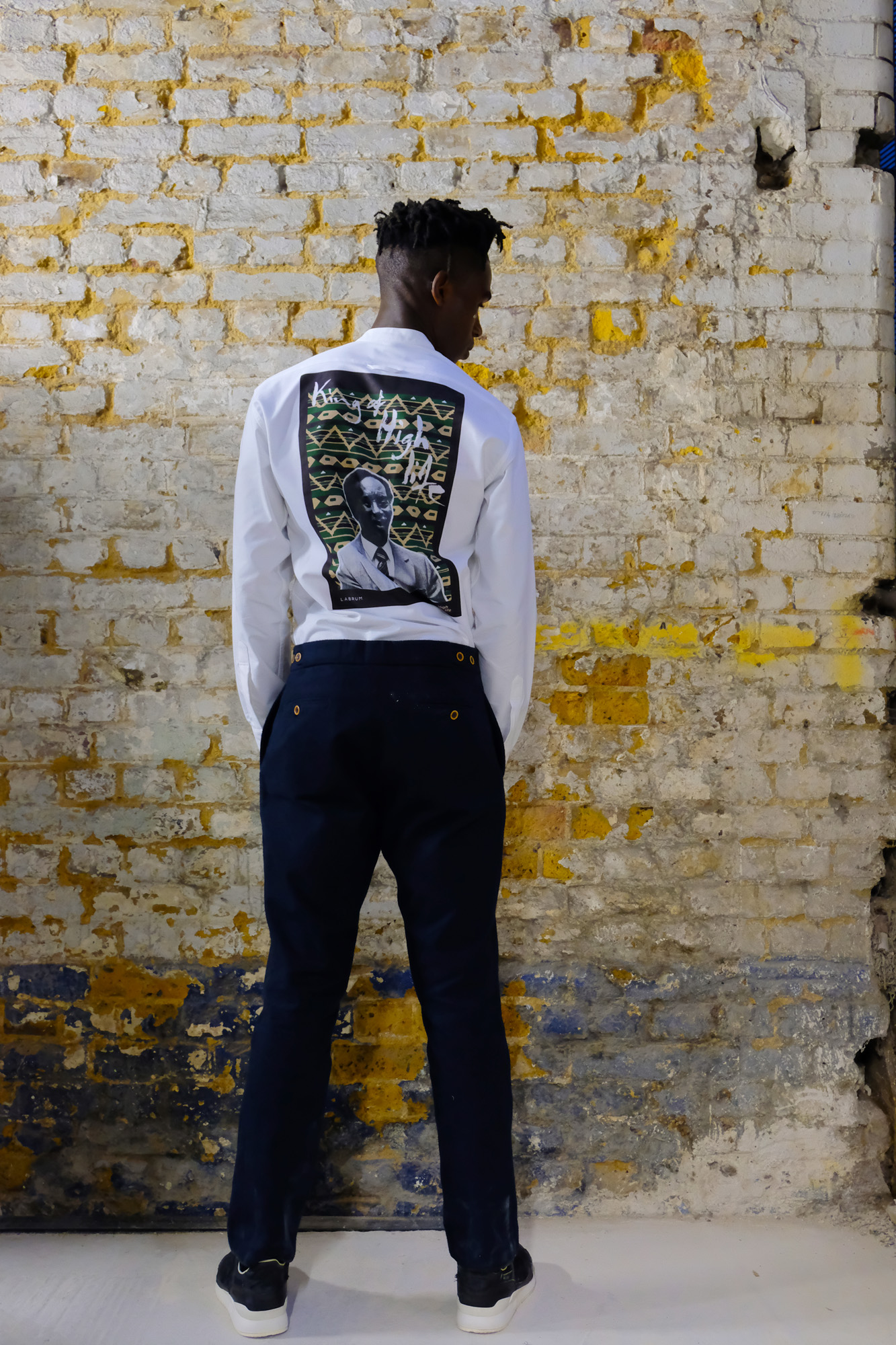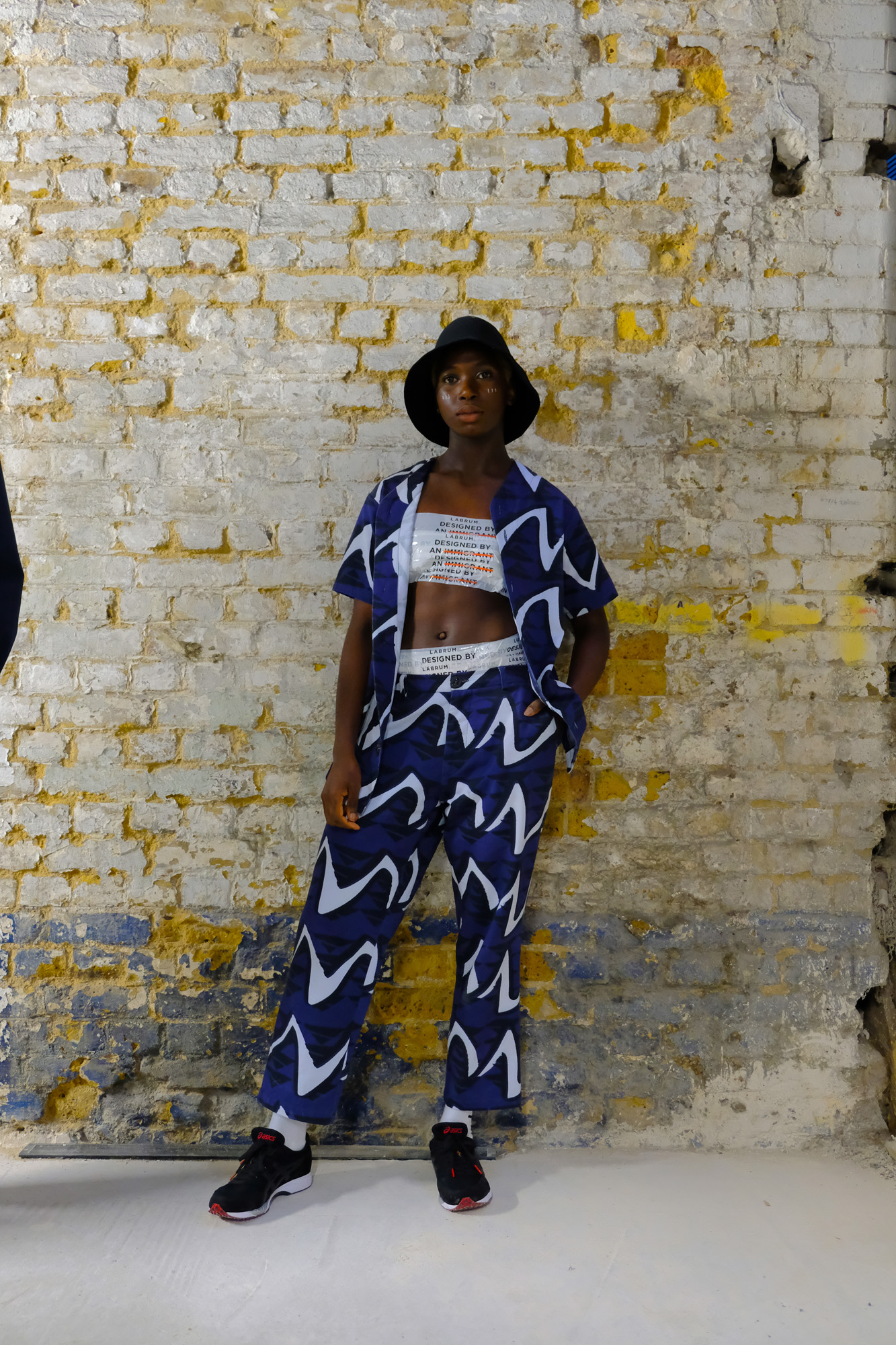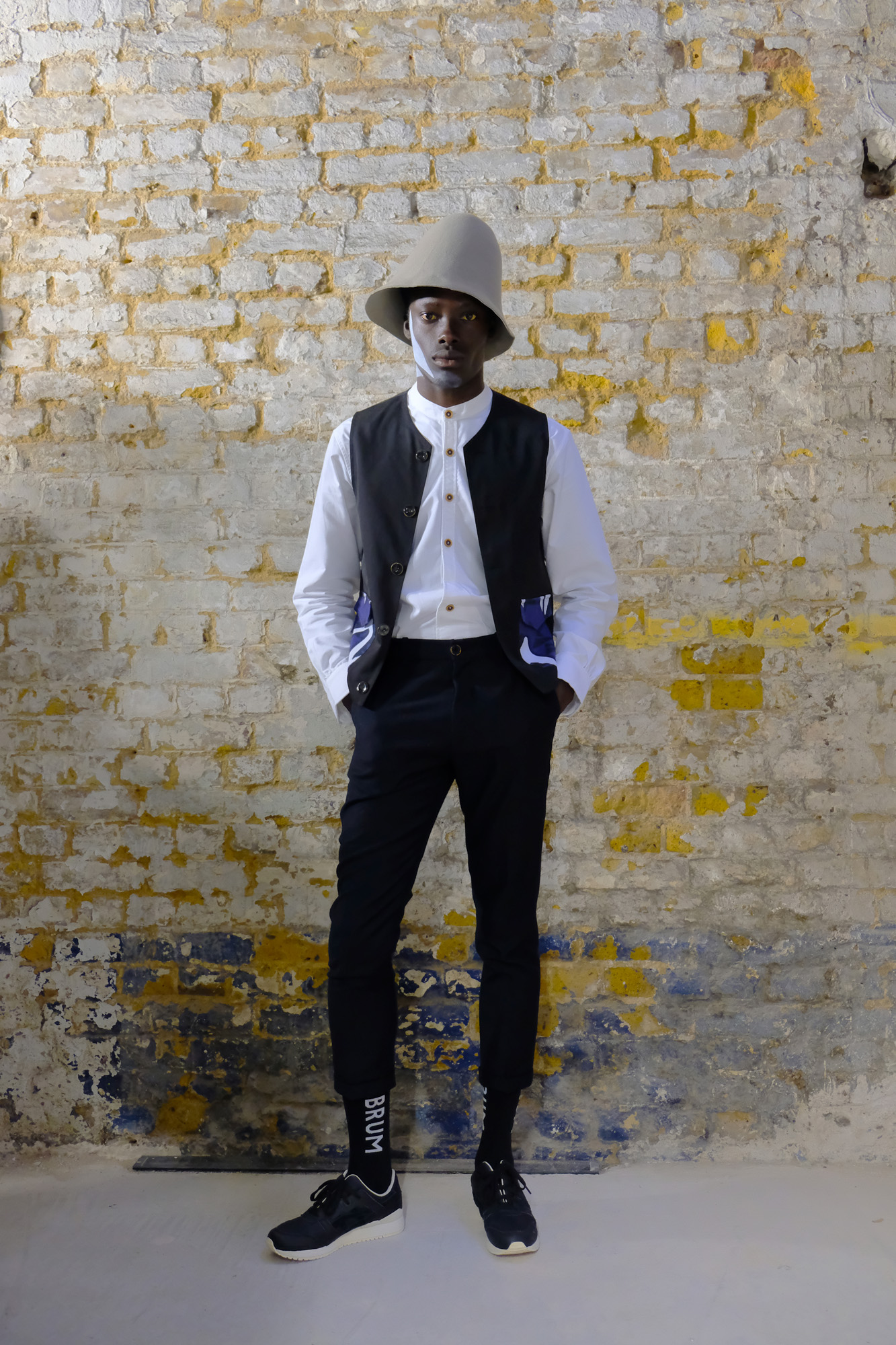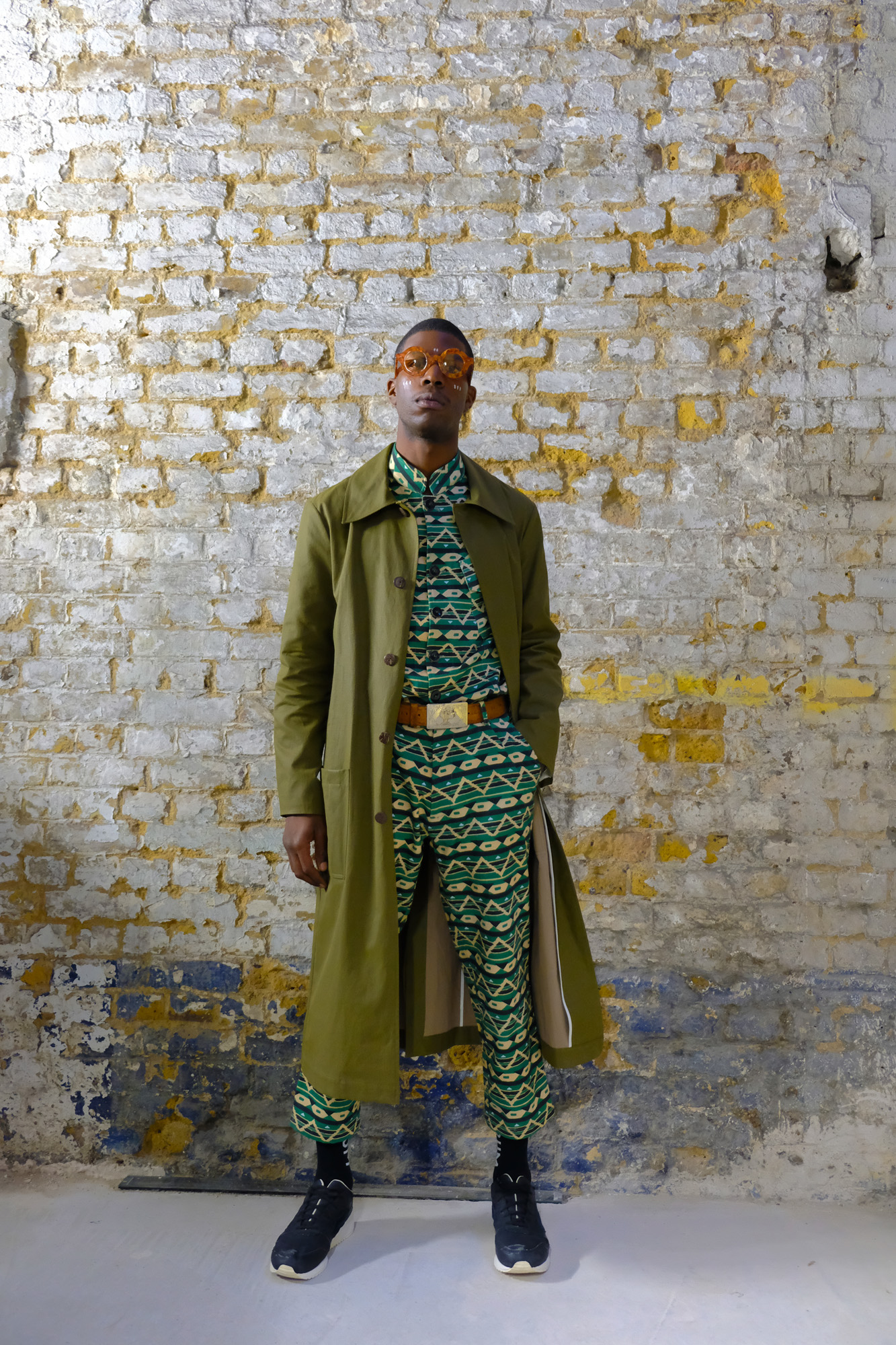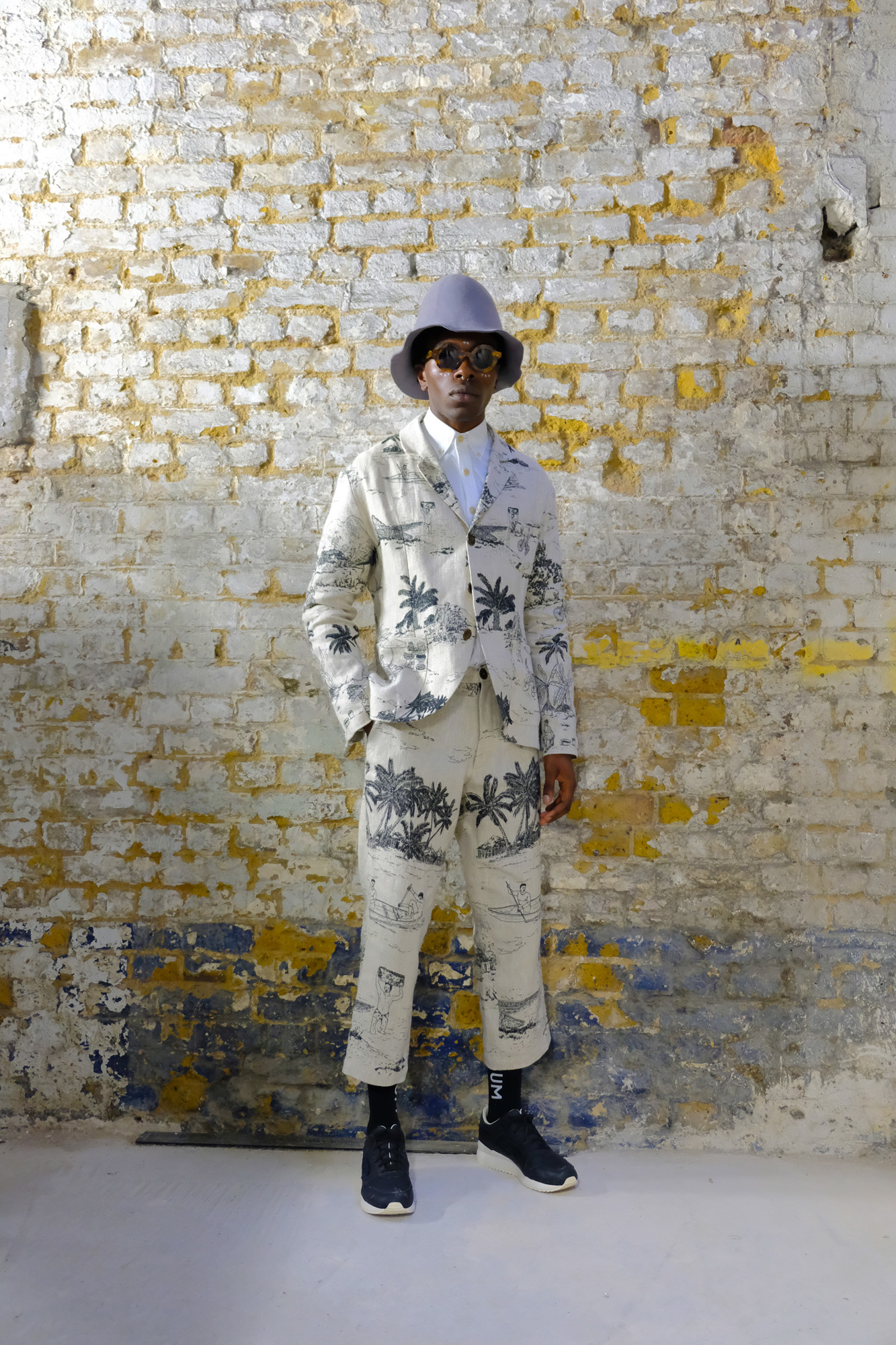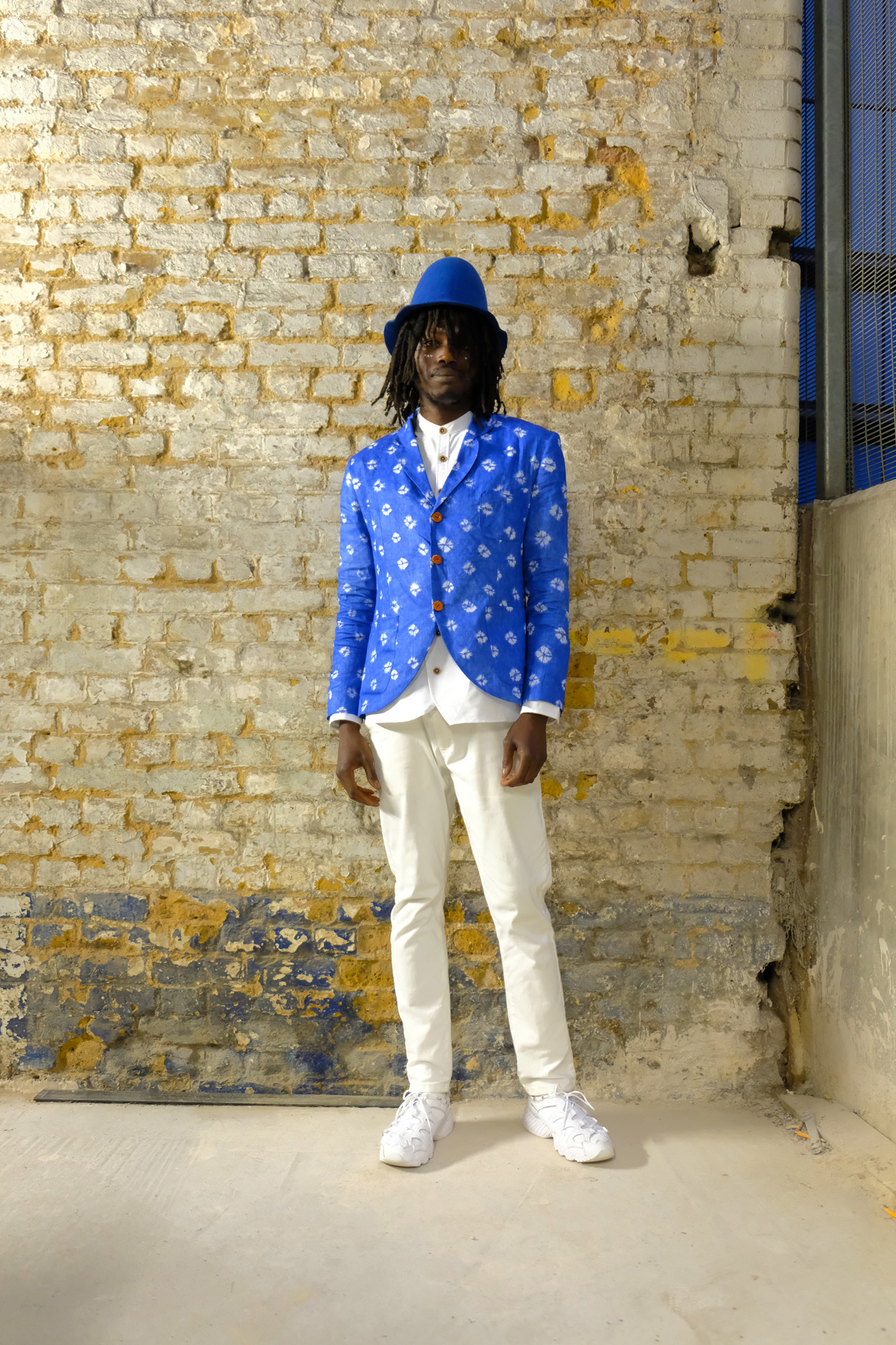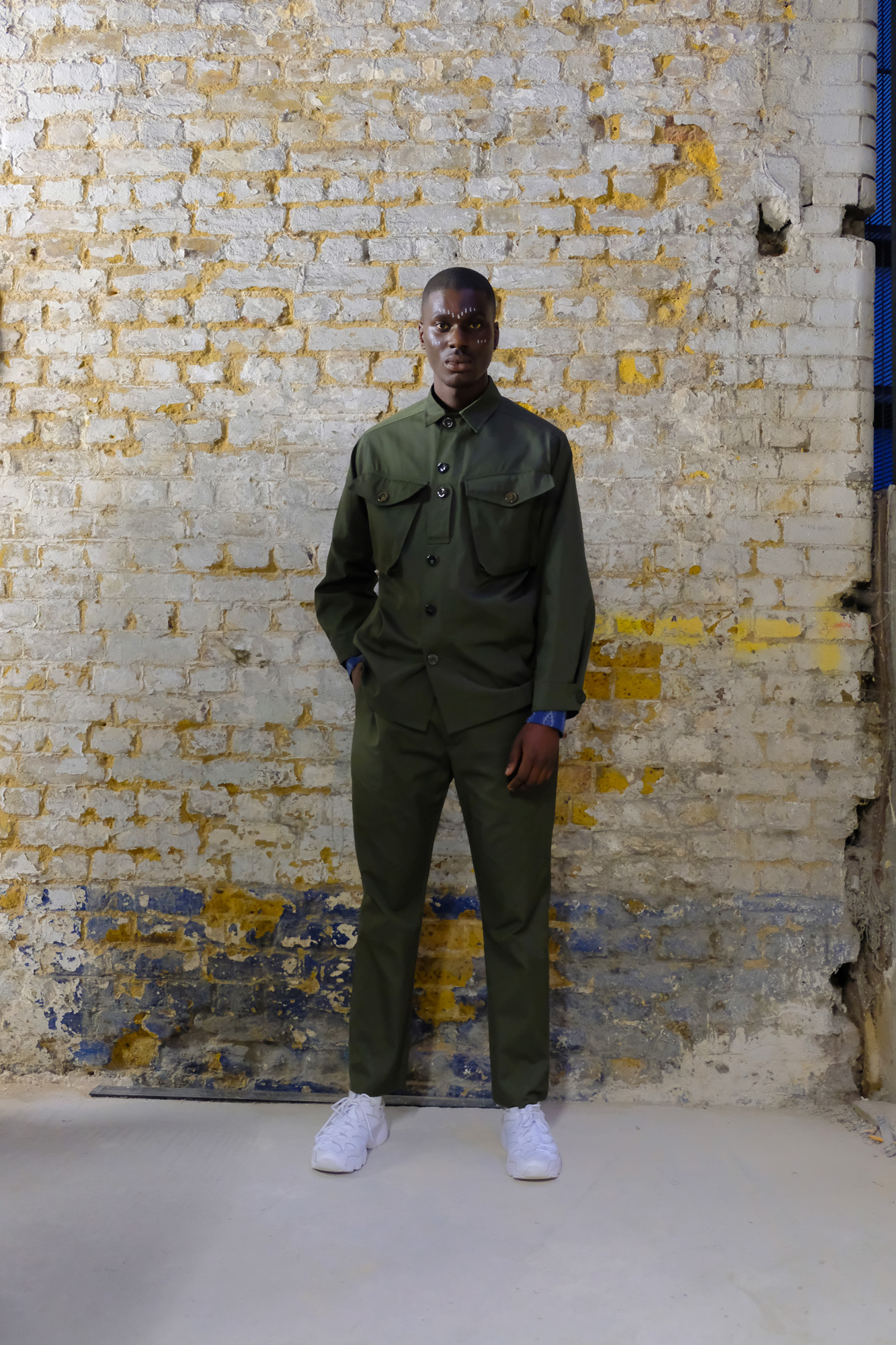Living the highlife with Foday Dumbuya as he discusses his no-nonsense, detail-driven approach to authentic menswear
“If you're looking for hype then Labrum is definitely not your brand. I want people to enjoy my clothes – it's not that abstract.” We’re talking to Foday Dumbuya about his London-based menswear brand Labrum, and this statement reflects the designer’s refreshing lack of artifice. Creating classic, premium pieces that are built to last, Dumbuya’s straightforward aesthetic and brand values take their cues from travel, heritage and a utilitarian attitude.
Born in Sierra Leone, his formative years were spent in Cyprus, before relocating to London where he attended secondary school. Establishing Labrum (a Latin term for ‘having an edge’) in 2014, the brand has gone from strength to strength and he showed his latest SS19 collection, entitled Highlife Revival, at London Fashion Week Mens. Complete with a spoken word artist, live band, rum punch and grooving models, the event was 60 per cent party, 40 per cent fashion presentation. “Highlife music was a big part of my life growing up. My old man collected records from S.E. Rogie and E.T. Mensah and he and my mum would dance to it. I thought it was horrible as a kid,” he recalls. “Then I started going to some African raves [in London] and it reminded me of my parents playing those tracks.”
The resulting collection reverberates with graphic patterns, bold hues and wave prints reflecting the sonic frequencies of this feel-good music. But records aren’t the only thing he’s inherited from his late father. Dumbuya has also been greatly inspired by his impeccable dress sense and approach to relaxed tailoring, hence the collection’s pared back blazers, cropped trousers and raincoats. “He wore two piece all of the time with a handkerchief on every suit, and that resonated with me. There’s always suiting in my collections and it has this workwear effect because he was in the police force, and then moved into politics.”
What make his deceptively simple designs different are the hours he dedicates to fit and shape. “I love to look at a vintage piece, deconstruct it and then put it back together, adding my own touch to it. I've been getting back to old silhouettes and old ideas. Getting the right shape is key.” Dumbuya’s micro-obsession however is buttons. “They bring a garment to life, a little detail that makes it authentic. But if you use half decent buttons, it takes away the beauty of that piece. If I make something and the buttons aren't right, I am revisiting it again and again. Now I'm thinking about what I can do with buttons next, maybe start 3D printing them.”
“If you're looking for hype then Labrum is definitely not your brand. I want people to enjoy my clothes”
Now part of London’s thriving African creative scene, Dumbuya has recently teamed up with fellow menswear designers Olubiyi Thomas and Daniel Olatunji of Monad London to form the 419 Collective, which they describe as an incubator for emerging talents. “If you don't have money or a network of friends in the right places, you're screwed. As an African, and knowing that we don't have that infrastructure, we're using our expertise and skill sets to create something fun and interesting to get people’s attention.” They’ve hosted showrooms in Paris and Copenhagen and Labrum is currently stocked in London and Berlin.
In the same vein, Dumbuya is also passionate about his Designed By An Immigrant mini-line. Formed in response to the negative rhetoric that surrounds immigration, he decided to celebrate the vital contribution that immigrants make with a capsule of slogan T-shirts and sweatshirts. “I will continue pushing that message. You can't demonise us, we're doing good things,” he says. And it’s working, with his designs attracting international attention. “Every time I talk about it, or release something with ‘Immigrant’ on it, there's so much engagement, it's been overwhelming. People get so hyper, especially over in the States.”
Beyond fashion, he’s also set up Labrum Athletic, a running club in Freetown, where his mother still lives. “I found so many kids running without shoes but so determined to improve their skills,” he explains. Collecting running gear from his friends back in London, he took it over there just in time for Christmas, “because Freetown is so poor, people don't look forward to gifts at Christmas time, and I'm an old man – I don't need a gift. Now they run every Tuesday, Thursday and Saturday. They go to my mum's to drop off their bags, and she gives them drinks.”
With all of these projects on his plate, what else does the future hold for Dumbuya? “I’m going to keep doing more experimental stuff, and hopefully, get it into a few doors. I want to continue working with people who actually understand our story, and most likely, open a small store offering an atelier service for bespoke suits.”
Visit Labrum
Published on 19/08/2018


